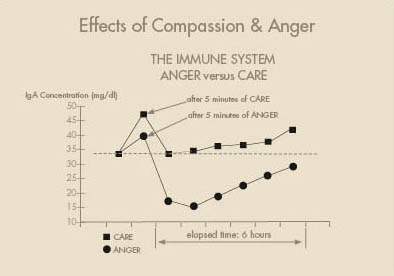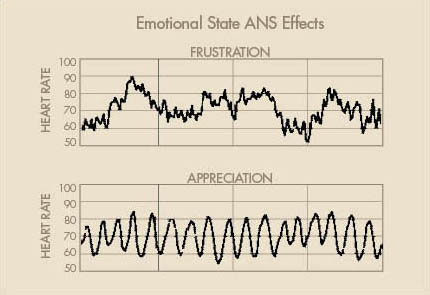ADHD and ADD - States of Emotional Stress
 I provide effective drug-free therapy for treating ADD, ADHD, and emotional stress in kids, children, and teens - Rockland, Westchester, Tarrytown, White Plains, Nyack, NY.
I provide effective drug-free therapy for treating ADD, ADHD, and emotional stress in kids, children, and teens - Rockland, Westchester, Tarrytown, White Plains, Nyack, NY.
I often work with the entire family of adolescents, finding parental involvement to be very helpful. As a therapist, I utilize personalized treatment modalities that have proven successful over extended periods of time.
Natural, holistic treatment is given with personal insight into your child, and based on my 31 years of experience with ADD or ADHD.
Emotions and stress in teens can be very difficult to deal with in many families, and this challenge can become an added stress, in addition to the teen's condition.
“Stress” is a word commonly understood today to express a wide range of conditions. You often hear people say “I’m stressed out”, or “I’m having such a stressful day”, or “The stress is getting to me.”
Emotional stress: we talk about it, say we have it, know we would like less of it. However, what exactly what are we talking about when we say that we are “stressed”?
In physics, stress is defined as “an applied force or system of forces that tends to strain.” Here we have another word for stress: “strain.”
Dr. Hans Seyle, the “father of stress research,” deeply studied stress for over forty years. He gives this definition of stress: “nonspecific responses of the body to any demand made upon it.”
Now this is getting interesting. Stress - emotional stress - is a response of the body to any demand made. This also involves the mind. Stress involves a physical, emotional and/or spiritual reaction to some external (or internal) demand.
In our emotionally stressful day, there are many demands that we must meet in order to survive. In Rockland and Westchester ADHD / ADD treatment, the psychology I practice pays precise attention to children's and teen's needs within our busy and demanding culture.
Stress, then, can be defined in terms of various demands we encounter and face in life. We need to breathe deeply, drink water, eat, and sleep. We need food and shelter. There are professional demands such as deadlines that we must meet at the office. There are family demands (child or teen stress) such as making sure the kids’ homework is complete, scheduling and transporting the children to various events, and caring for our children and parents.
What do all these demands have in common? TIME. They all require time and energy. In emotional stress—when we experience time pressure, we are likely to feel stress in our body, mind, and spirit.
We now know that there are many sources or causes of stress that include time pressure. Most people find disease to be a source of stress. Undoubtedly, having a disease is stressful. But consider that stress is the major, perhaps the most prominent, cause of disease. Negative emotional reactions are powerful causes of disease.
There is much information in the mainstream media to convince you that diseases like diabetes, heart disease, high blood pressure, stroke, arthritis and cancer are the result of genetic factors. However, although genetic traits are passed down from generation to generation, a genetic predisposition to a disease does not necessarily mean that the disease will manifest.
In understanding stress and emotions, the truth is that the environment plays a major role in the disease process. The way you treat your genes throughout your life is more important than genetic inheritance in terms of health and disease state as an adult. So, what you have eaten, inhaled, been exposed to in food and water, stresses endured, and environmental toxins, can alter the expression of genes.
Emotional stress produces disease. Exposure to detrimental events is stressful. These events can be emotional, physical, sensory, or chemical. These “events” causes the body to react. In stress and emotions, the body must expend extra amounts of energy to prevent the stress from causing injury or death.
For example, if exposed to cold, the body will increase metabolism to maintain a body temperature that preserves life. The resulting shivering requires extra energy. The cold is viewed as a stress that stimulates the body.
Our body can handle stress, for a while. However, if an emotional stress continues unchecked, if it continues too long, the body responds by creating symptoms and disease in order to get one’s attention.
The following graphs show how stress can impact our physiology:

This graph shows the impact of one 5-minute episode of recalled anger on the immune antibody IgA over a 6-hour period. The initial slight increase in IgA was followed by a dramatic drop which persisted for six hours.
When the subjects used the Freeze-Frame technique and focused on feeling sincere care for five minutes there was a significant increase in IgA, which returned to baseline an hour later and then slowly increased throughout the rest of the day.

This graph shows how anger/frustration produces sympathetically dominated system. Anger/frustration creates a disordered HRV waveform pattern.
In contrast, appreciation/compassion produces increased parasympathetic activity. It is clear that appreciation/compassion creates an ordered sine wavelike HRV waveform indicative of the relaxation response.
Upper, West, South Nyack, all Rockland county, Tarrytown, White Plains, all Westchester, NY ADD ADHD treatment therapy for kids, teens and children with highly respected psychologist, Dr. Vincent D'Amico. I am conveniently located in Tarrytown, NY and Valley Cottage, NY. Call me to make an appointment today.


 I provide effective drug-free therapy for treating ADD, ADHD, and emotional stress in kids, children, and teens - Rockland, Westchester, Tarrytown, White Plains, Nyack, NY.
I provide effective drug-free therapy for treating ADD, ADHD, and emotional stress in kids, children, and teens - Rockland, Westchester, Tarrytown, White Plains, Nyack, NY.
